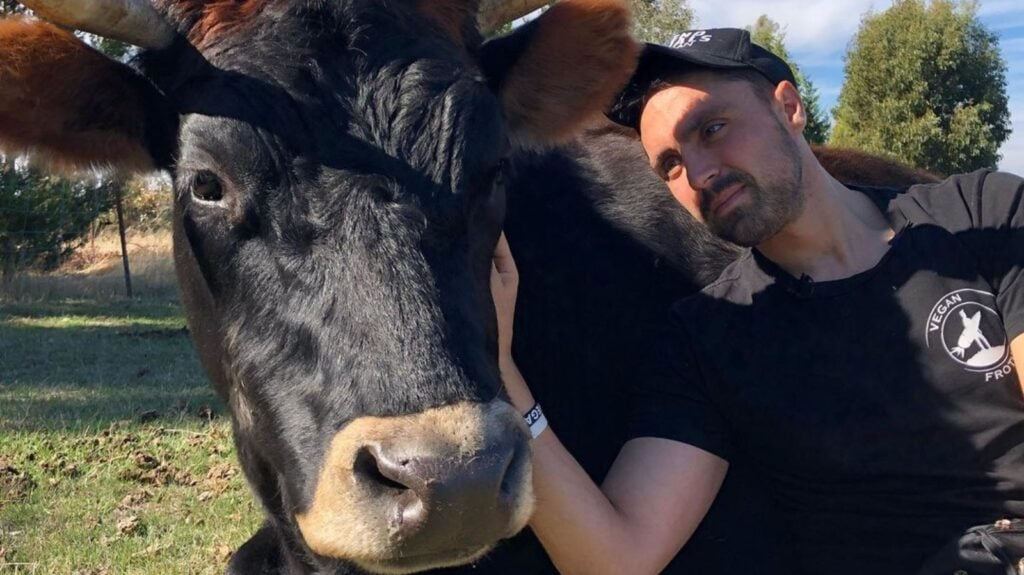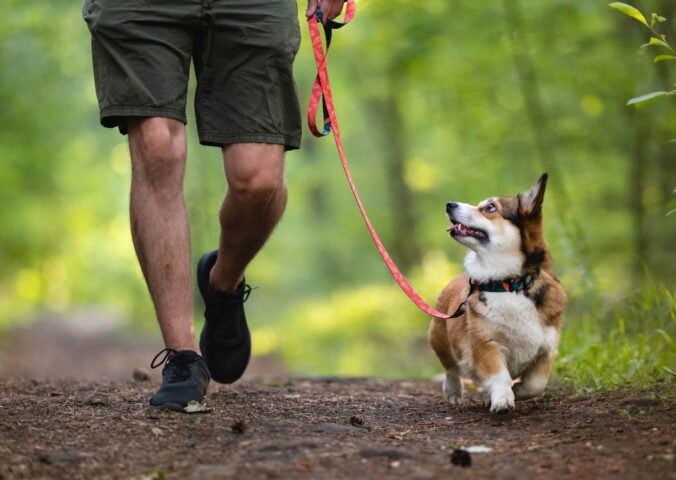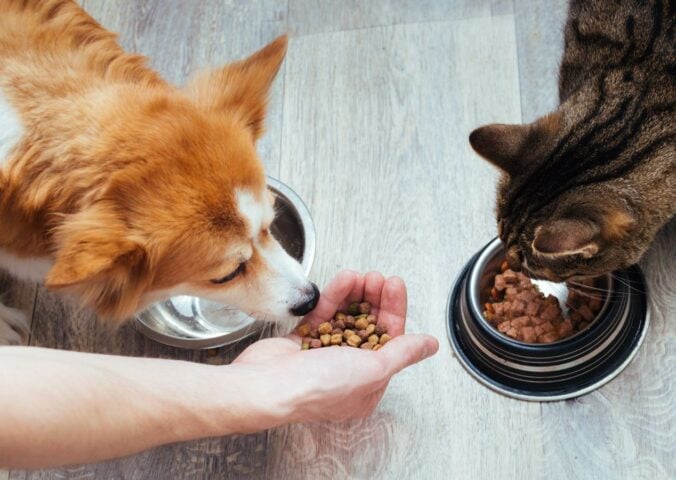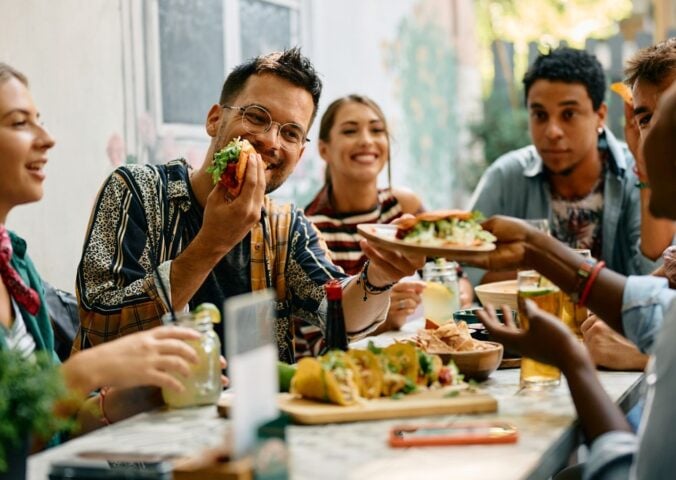In February, I sent my investigators to set up hidden cameras at a small, local, family-run slaughterhouse called C.J. Byford & Son. We only left our cameras in for around two weeks, and this is what we found.
Whilst reviewing the footage, I saw terrified cows who were desperately trying to escape the knock box. One bellows out in fear, and another tries to avoid the bolt gun for nearly 40 seconds, tearing off their horns in the process. One cow even knocks the bolt gun off the shelf, in what seems like an attempt to hide the weapon.
An angry, frustrated slaughterhouse worker comes in to take revenge on that same cow, who apparently hurt his hand whilst he was herding them in. We hear the man swearing and threatening the cow, before aggressively grabbing them by the nostrils, pulling their head downwards, and bolting them in the head.
The cow bellows out in shock, yet appears to still be conscious. This is made even more evident when the man begins to cut the cow’s throat. The animal’s legs are still moving around and the cow is heard gasping for air through the hole in their neck. The man then proceeds to decapitate the cow, throwing their severed head, which slides across the floor.
Confronting the facility
After seeing this footage, I took a camera crew down to speak to the slaughterhouse staff, who were not aware I had already seen footage from inside. The woman who owned the facility was a grandmother, and her son was the main slaughter worker who had been aggressive towards the animals. This was truly a family-run operation.
The grandmother was polite and well spoken, but was a bit spooked when she saw the cameras. She proceeded to reassure me that nothing bad was going on inside and that no animal there was mistreated. We began to discuss the methods at her slaughterhouse, and she told me that no animal sees another animal be killed; they are completely oblivious.
The footage paints a completely different picture, as you can clearly see cows witnessing other cows being dismembered, and that is what understandably freaks them out and prompts their subsequent cries for help and escape attempts.
She also told me that the animals inside are treated with respect. If that is the case, her son has a very warped idea of respect, as shown in the damning investigation footage. It seems as soon as her son is frustrated, he takes his anger out on the innocent animals who cross his path. I asked her if it would be “respectful” to put me in her slaughterhouse, a question she preferred to avoid.
The main thing that frustrated me about my conversation with the slaughterhouse owner, was not the fact that she constantly lied, denied reality, and gaslit me – that part I was ready for. It was the fact that when a pig rolled in on a truck while we chatted, ready to be slaughtered, she insisted that I didn’t scare the pig and that the pig could get afraid easily if I approached them.
The audacity of a slaughterhouse owner telling an animal protector not to “scare” the animal she’s about to send inside, to be decapitated by her violent son. What a sick joke.
Are local farms actually ethical?
You may often hear people say, “I only buy meat from my local butcher, and the animals are from local farms.”
Well, the animals who were killed at C.J. Byford & Son were from the surrounding local farms. And, the business supplied only to local butchers, not supermarkets. This place was about as local and family-run as you can get. But look at what our cameras uncovered there!
When people speak about “local meat,” it can sometimes be hard to understand what they really mean by it. Do they mean that just because a facility is in your general proximity, there isn’t any cruelty happening there? I have a large factory chicken farm 30 minutes away from me – it’s local, does that mean it’s ethical? Or when they say “local” do they mean a family-run place like C.J. Byford & Son, that only kills animals from nearby small holders?
‘Humane slaughter’
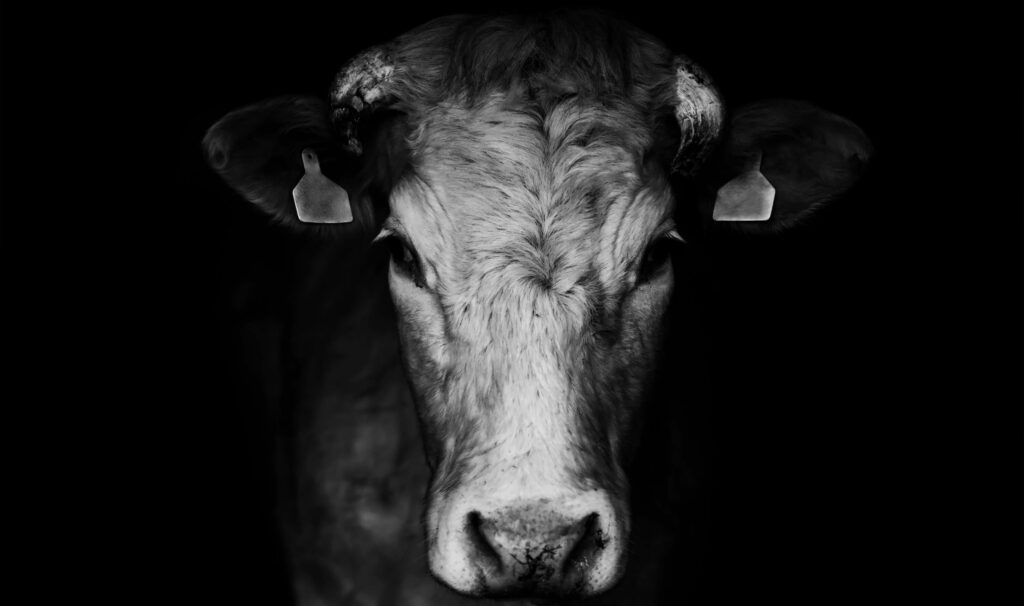
When people hear that a farm or abattoir is local and family-run, they automatically think that it means it is humane. When I analyze the concept of “humane slaughter,” I always break it up into two categories: practical and principle.
The practical point is that when these “higher welfare” facilities are investigated, animals are often found in fear, struggling to escape, incorrectly stunned, or most notably in the case of pigs, stunned using the most “humane” method available, which is CO2 gas.
Research has shown that the CO2 method is aversive to pigs and causes them fear, pain, and suffering. So from a practical viewpoint, the industry’s current humane slaughter methods are not even humane by its own standard, and definitely not by the standard of the average meat consumer.
Can meat be ‘humane’?
But for me, we don’t need to spend time debating the practical point. Because the principle point overrides it and is by far the most important.
Even if the animals weren’t terrified or tortured before their death, even if we could isolate and solve every single welfare issue involved in the mass killing of animals for food, it will still always be fundamentally wrong to kill someone against their will.
You see, if it is not in the best interests of the animal to die (for example, in the case of euthanasia for a suffering animal who can’t be helped), then to take away the animal’s experience of life can only be described as an injustice.
Content warning: the following video contains graphic depictions of animal abuse and may disturb viewers.
In principle, humane slaughter is a myth, a fairytale. It only serves to make the killer feel more comfortable about killing. It has nothing to do with the rights of the victim, because if the animals’ rights were truly being respected, then so too would their right to continue living.
When navigating these moral issues, I’ve found it helpful to put yourself in the victims’ position. Would X be humane if it were done to YOU?
C.J. Byford & Son is a very good example of how a quaint little family-run slaughterhouse might not necessarily meet the animal welfare expectations it promotes. The fact is, these slaughterhouses, whether local and family-run or not, are nothing more than killing factories. Animals go into them against their will and come out hacked into pieces. Why would we believe that something humane happens to them along the way?
